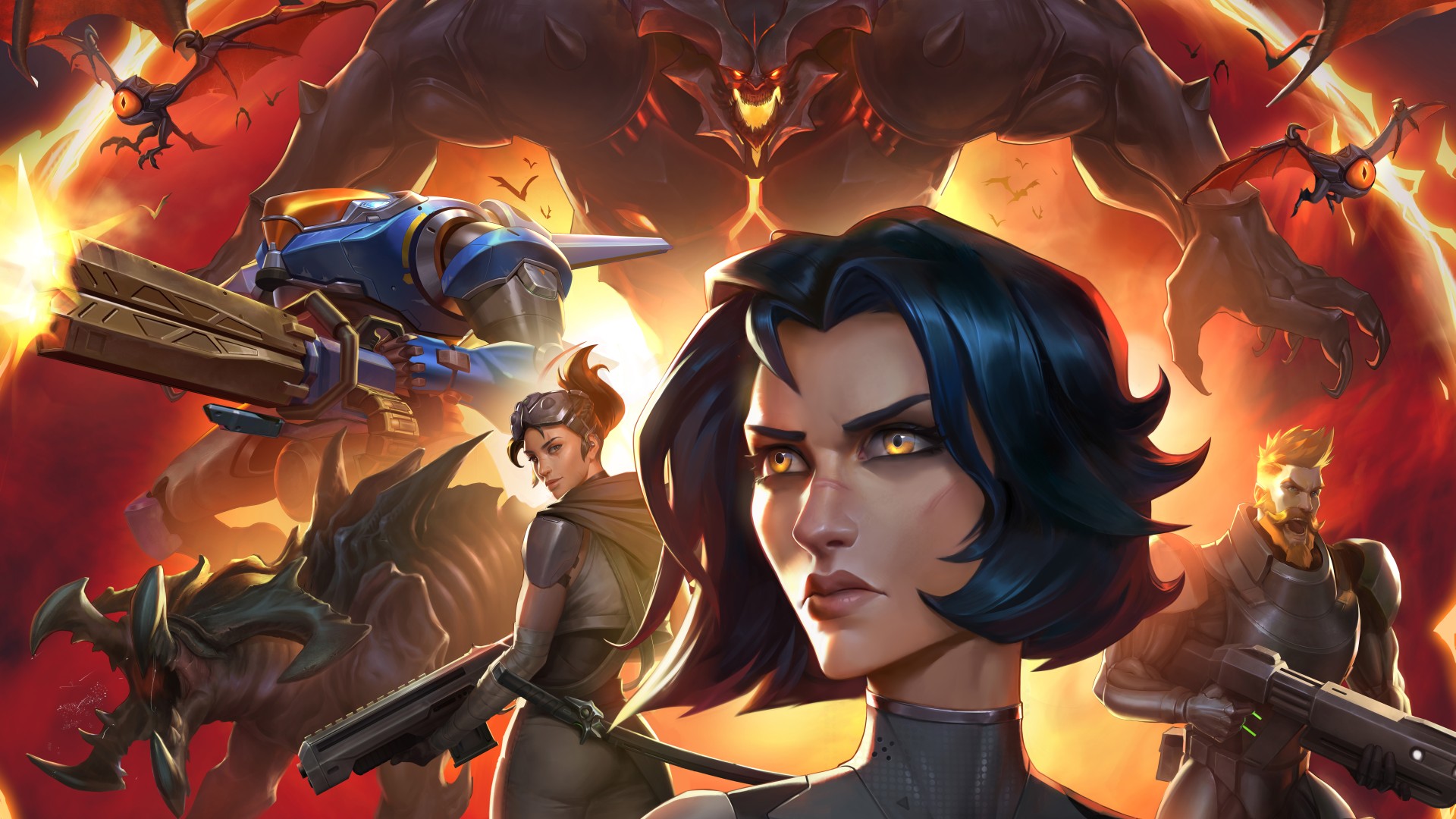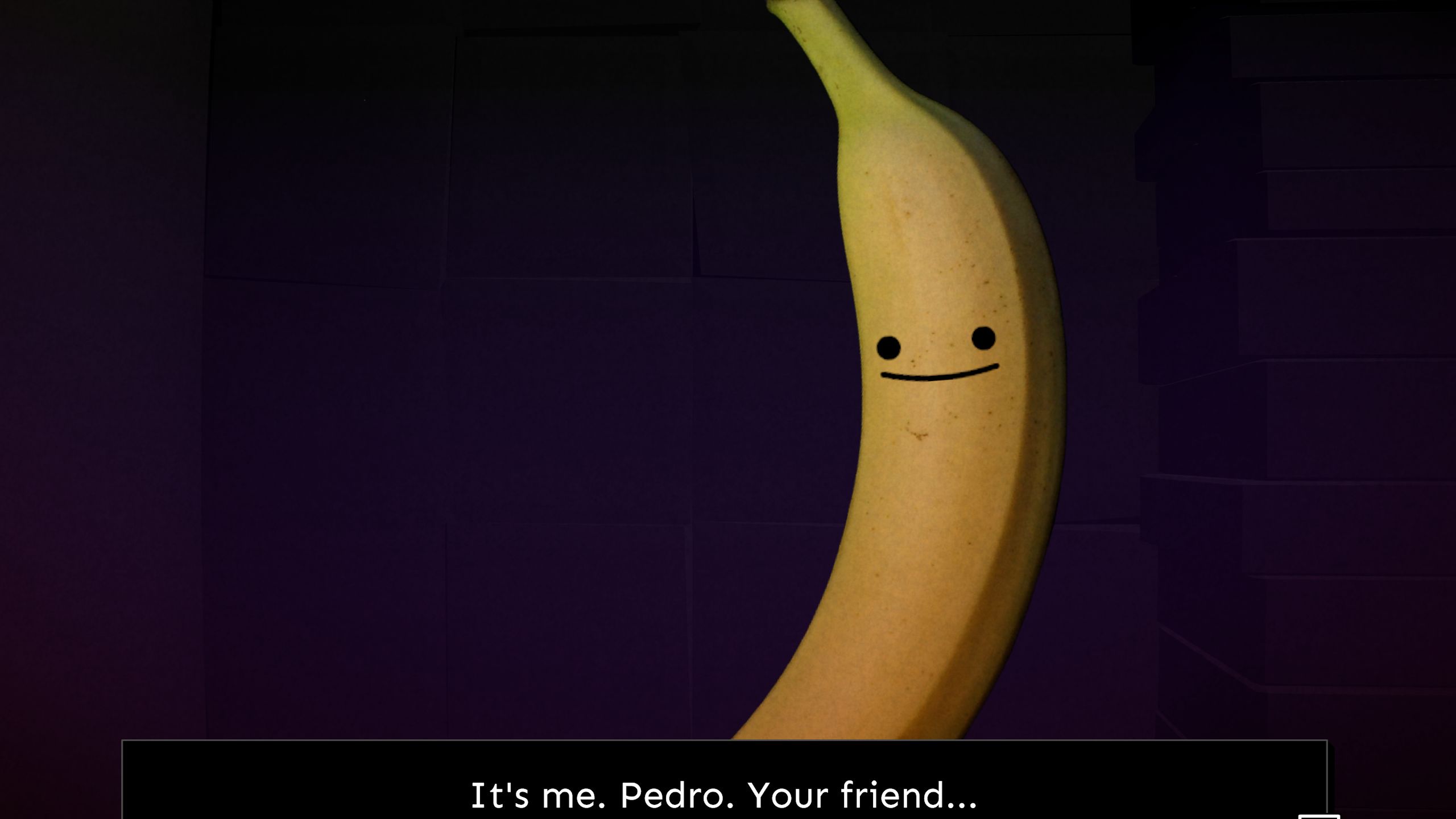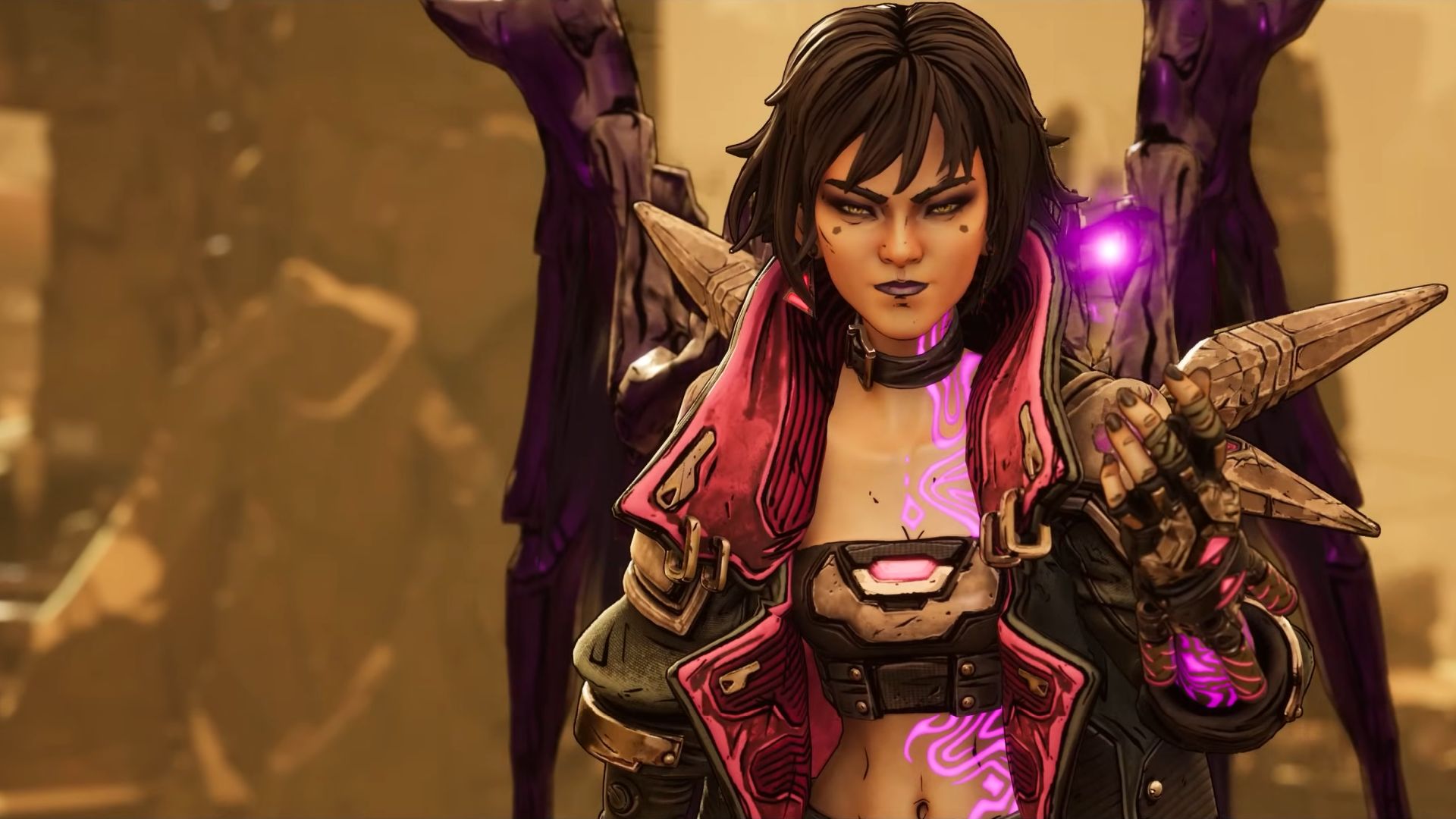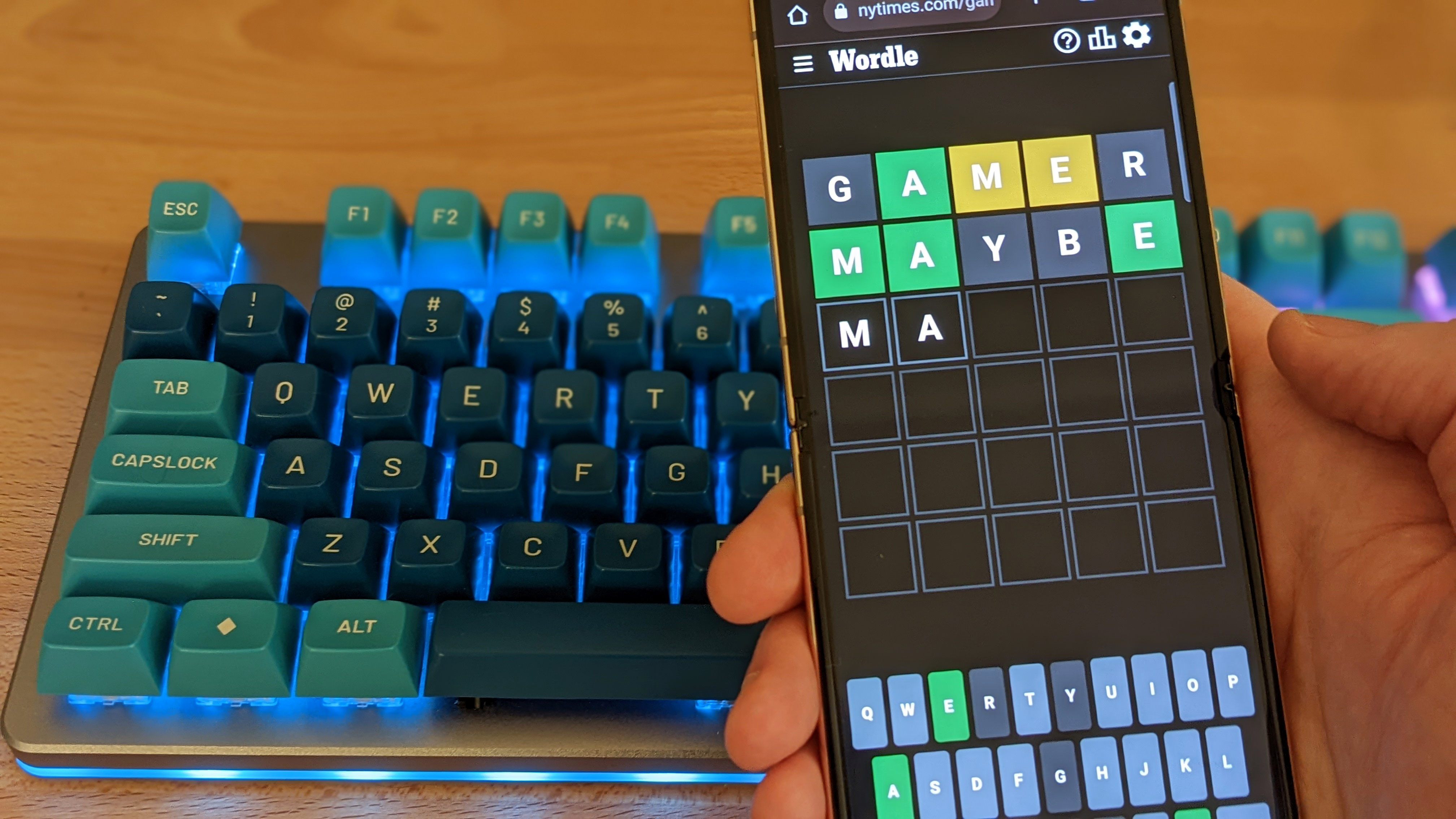
Saber Interactive CEO Pulls Back the Curtain on Joining, and Leaving Embracer
In the aftermath of Saber’s separation due to Embracer’s recent struggles, it might be easy to expect someone like Saber Interactive CEO (and owner, via holding company Beacon Interactive) Matthew Karch to be a bit gleeful, or even spiteful. But he’s not.
Speaking to IGN earlier this week, Karch comes off more content than anything. He says the departure was bittersweet, so while he’s satisfied with his decision, he’s also equally happy with the winding pathway he and Embracer took to get there. Karch tells me he has no regrets about being acquired by Embracer to begin with. “For the most part it turned out as I had imagined, at least for the first couple of years.”
We wind back the clock a little. In February of 2020, when Embracer acquired Saber for $525 million, the publisher was actively growing. It had just acquired Bigmoon Entertainment the previous October, and launched World War Z to major success. Karch says he and his fellow co-founder, Andrey Iones, knew they had two options. They could keep moving on their current path by making a World War Z 2 and acquiring even more licenses to make games with; or they could find a partner that would “be supportive of our ambitions to replicate what we thought we were successful at doing, and to find a way to increase the speed at which we could develop product and bring content to market.”
“And that’s pretty much what’s happened,” Karch says.
Embracing Embracer
Embracer’s strategy at the time was, per Karch, one of acquisition. He compares the company to Pac-man “gobbling up everything on the screen.” But this was fully in line with Saber’s wishes, too. Under Embracer, Saber picked up Metro developer 4A Games, New World Interactive, 34BigThings, Mad Head Games, Nimble Giant Entertainment, Snapshot Games, 3D Realms, Slipgate Ironworks, SmartPhone Labs, Demiurge Studios, Fractured Byte, Bytext, DIGIC Pictures, Shiver Entertainment, and Zen Studios. It also briefly oversaw Aspyr, though Aspyr was acquired directly by Embracer itself.
“These are developers that have one of two issues, not in the sense of negative, but in the sense of this is the way this business is run,” Karch says of the studios Saber acquired, specifically referring to 4A, Mad Head, Nimble Giant, and DIGIC. “Developers oftentimes, and I was one of them on that side for a long time, are primarily concerned about keeping the lights on. It’s really hard to get out of that rut when you’re a developer trying to constantly find contracts to keep your business afloat and to keep your lights on. And so bad deals often get struck with publishers and publishers that take the lion’s share of the revenue or change their mind halfway through a project or whatever else it might be. And what you end up with is highly talented developers who have never really had a full development cycle to do anything that truly represents what they’re capable of. I looked at this as an opportunity to bring those developers into a place that they maybe wouldn’t be able to get into on their own.”
Karch offers the example of 4A Games, which he says “had another project that they’ve been working on” which wasn’t Metro at the time Saber acquired it. But the team wasn’t able to pursue it fully due to being focused on Metro, and Karch claims the business wasn’t “efficient” enough to do both. But, he continues, Saber helped 4A build out a second team, and 4A began working on the project more fully.
So if Karch was so happy with the Embracer deal initially, what happened? Not bad blood, says Karch. As he tells it, Saber is leaving Embracer on “very good terms,” and he’s effusive in his praise of Embracer CEO Lars Wingefors, repeatedly calling him “a really good person” and “a man of his word.”. He says the biggest difference between himself and Wingefors is that Wingefors believes in decentralized management, and Karch doesn’t. While Wingefors wants to let studios operate fairly independently within the larger structure of Embracer, Karch wants to be more hands-on. “There isn’t one that’s right or wrong, they’re just different.”
Just a small-town company
Initially, Embracer was doing well and all was going to plan, but Karch claims the market was not “patient” with the company, and that led to financial struggles that necessitated a number of assets, Saber included, taking their leave.
“I was walking around GDC getting congratulated by people and having people telling me that Embracer is the evil empire, Karch says. “Embracer is as small-town and homegrown of a large organization as you’re ever going to see. It’s not a company which wants to spit out a thousand Lord of the Rings games regardless of whether or not those Lord of the Rings games are going to hurt the license. That’s not the way Embracer operates. It’s not the way Lars operates. He loves IP. He loves games. He loves game developers. He got to start in comics. God knows how long ago, and he’s just a good human being, and he cares about his people.
“But when the market shifted, the market lost patience. And when the market lost patience, hard decisions had to be made because there was just no way to sustain everything that was going on. And so that’s why the layoffs occurred. I don’t think the layoffs that Embracer incurred to any larger or degree than they incurred anywhere else, but Embracer, because it acquired so quickly, has gotten a reputation because it’s had to lay off people quickly.”
Embracer is as small-town and homegrown of a large organization as you’re ever going to see.
I push back on this, pointing out that this is probably a hard sell of an argument for players and developers given the sheer amount of money Embracer was throwing around. People lost their livelihoods over this. I liken it to trying to convince people a giant cruise ship is really just a small sailboat.
Karch is sympathetic to individuals hurt by the layoffs, but unmoved by the public perception of Embracer.
“It’s very easy to look from the outside at a situation when you’re not familiar with the people in this situation or what guides those people and to draw conclusions,” he replies. “You could state that a lot of the jobs that were lost were jobs that wouldn’t have otherwise been created…Some of the studios that we’re taking with us would never have been able to grow the way they’ve grown. No way. We’ve created a lot of jobs, and they may have, especially in this market downturn, been out of business in any event because capital has just dried up, not just at Embracer, but everywhere. There was a long period of time when nobody was investing at all.
“…I think you can blame Lars for maybe being a little bit naive that this gravy train would just continue. But I think now you could admire them for making tough decisions and doing whatever they can to preserve as much of what they’ve built as they can in a fair and equitable way…I think some people saw those acquisitions and were annoyed by Embracer when they were acquiring. I remember a lot of negative comments about them gobbling everything up. And so now they’re a little bit gleeful…which I don’t think is entirely equitable. But give Lars a break or have somebody give him a break. Tell the world that I said they need to give this guy a break.”
Triple-A Troubles
Karch is willing to admit some mistakes were made on Embracer’s part. Some of the projects that Embracer shut down, for instance, Karch believes should never have been started. He says he was COO for six months and had to make difficult recommendations, calling out that there were several great ideas in development that were handed to teams without the capacity to see them through. So they had to be canceled, and the teams let go.
In Gearbox’s case, it wasn’t a matter of skill. Karch says he doesn’t “believe Gearbox should have ever been anywhere else other than Take-Two” and doesn’t know why Take-Two didn’t buy it before. But he claims the studio has “very, very lofty ambitions” that weren’t sustainable for Embracer, because the projects were “potentially risky.”
“In general, I would say that AAA development has become very risky. And that’s where Saber is different. Saber, I believe, can create AAA, but not at a AAA budget.”
Saber, he explains, has lots of different projects that are moderately priced, as opposed to a small number that are really expensive. But that still results in substantial costs. Similarly, Saber spends less money on development than many other companies due to where many of its global studios are located. But that cost-saving has been jeopardized somewhat in recent years by geopolitical issues with Russia (where Saber has a meaningful number of developers working) amid its war with Ukraine.
Still, the combination of these factors meant Saber in particular was well-positioned to strike out on its own from Embracer, sparing its struggling parent company the risks while remaining self-sufficient and successful.
“I went to Lars and I said, ‘I think Saber needs to be one of the teams to go,’” Karch says. “And it’s been bittersweet. I mean, it really has, because I love those people…I mean, these are family. I’ve been to war with, side by side with these people. They’re my friends. And so it was a very hard decision, but I think ultimately Embracer needed to get smaller and more focused, needed to reduce its spend on certain games. And do I hope that Embracer regrets it when they see how huge Space Marine 2 becomes? No, I don’t want them to regret it. I want them to be happy for me, but I actually would’ve loved it if that game could have contributed to their bottom line, because I think that… Look, I’m still a shareholder there, and I care about these people, and I care about that company, and I really hope they succeed, and I wouldn’t bet against them.”
Karch mentions Warhammer 40,000: Space Marine 2 here, which he says “is the best thing Saber’s ever done, and it probably occupies second, third, and fourth place also.” I ask him about other Saber projects too. The Knights of the Old Republic remake, around which rumors have swirled for several years now, is “alive and well” at Saber. 4A is working on its aforementioned, non-Metro project. John Carpenter’s Toxic Commando, Jurassic Park: Survival, World War Z, SnowRunner, MudRunner, are all still either in the works (in the case of the former two) or being actively supported (in the latter cases).
And then there’s the new Painkiller game, which Saber had previously been developing in partnership with Embracer-owned Plaion’s Prime Matter label. It’s still in the works, but it sounds like Plaion won’t be involved anymore. “We think we would be better suited to publish that game,” Karch says.
Karch, of course, has more plans beyond these which he can’t share for now. Saber, he believes, sits in a rare position between low-budget independent development and massive, high-budget AAA. It’s a “middle market” publisher. He cites Helldivers 2 as an example of a “middle market” game that performed “really, really well” – an example Saber seemingly wants to follow. For instance, he’s adamant that he doesn’t want to sell Space Marine 2 for $70, but is worried that audiences will see a cheaper price tag as emblematic of poor quality.
“I think that as games become more expensive to make, the $70 title is going to go the way of the dodo [bird]. I do. I just don’t think it’s sustainable…Look, you remember the hype for Cyberpunk, which I think actually ultimately performed okay, but when the expectations are so high and so much money is put into one title, it’s hugely risky for the company that’s doing it. What if it fails? You remember what happened when Ubisoft a couple of years ago, all their titles slipped out of the year, and then all of a sudden they were in an entirely different place? It’s hard to recover from that. I think the market is going to shift to development which is not necessarily lower quality, but there’s going to be an emphasis on trying to find ways to reduce costs.
Karch adds that artificial intelligence might help lower costs and improve quality in the AAA space, but that’s not enough. He believes that AAA game development is going through a major shift, a reckoning of sorts, and that the ongoing trends of sky-high budgets and years upon years of development aren’t sustainable. And if Karch is right, he’s eager for Saber to step in and conquer the market.
“I think that there’s going to be a real shortage of game content over the coming few years,” he says. “You’ve seen how many layoffs there’s been, you see how many games have gotten killed. But we have a lot of good projects going on that I’m proud of and that I feel really, really strongly about.”
Rebekah Valentine is a senior reporter for IGN. Got a story tip? Send it to rvalentine@ign.com.






